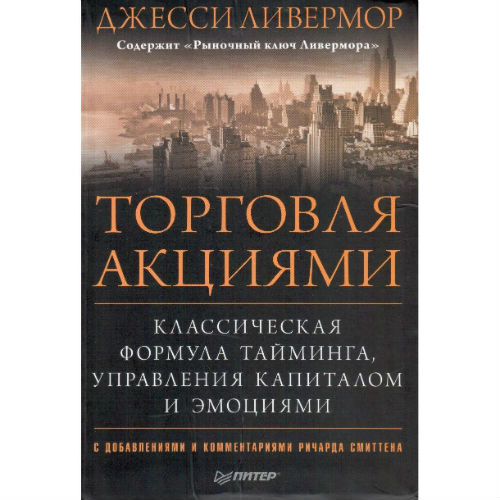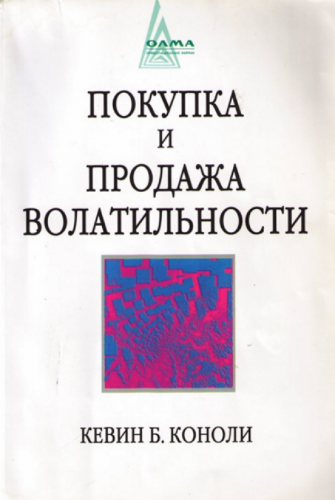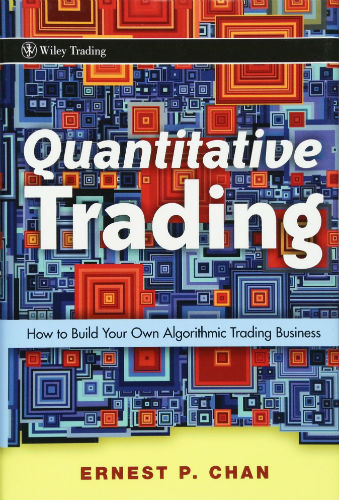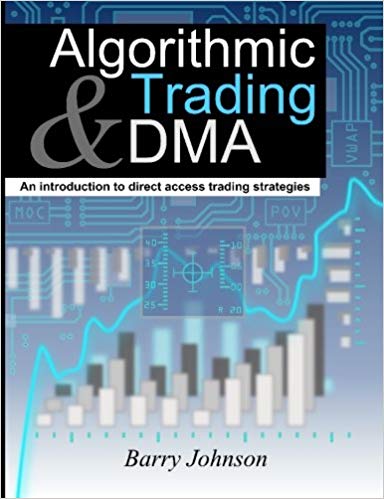10 books to understand the structure of the stock market, investment on the stock exchange and automated trading

Image: Unsplash
The modern stock market is a large-scale and rather complex field of knowledge. It’s not easy to figure out how everything is arranged here. And despite the development of technologies, such as robo-advisers and test trading systems , the emergence of low-risk investment methods, such as structural products and model portfolios , for successful work in the market it is worth getting basic knowledge in this area.
In this material, we have collected ten books that will help you understand the structure of the modern stock market, the intricacies of investing in it, and how advanced technologies are used here.
Note : the collection contains books in both Russian and English - there are not so many translated high-quality materials on advanced financial technologies, so knowledge of English will be a big plus for a full immersion in the topic.
Also, to apply the knowledge you need, you need a broker account - you can open it online or register a test account with virtual money .
Stock Trading. Classic Timing, Money Management and Emotion Formula - Jesse Livermore

A very useful book - it gives, as the name implies, the “Livermore formula” with an example of its application in the case of stock trading. Of course, in the modern market, where robots and high-frequency traders are playing an increasingly important role, you are unlikely to be able to use it, but it will be extremely useful for understanding the structure of the market.
Fooled by chance. The hidden role of chance in markets and in life - Nassim Talleb

The main idea of the book is very unexpected for the vast majority of people - if some person was lucky in life, then it is likely that he is not such a genius who developed a successful strategy, but a simple lucky one. On the stock exchange, everything is the same as in life - there are trading strategies using which someone breaks the bank, but no one knows about the many investors who, following them, did not succeed. The book is very useful for forming the right attitude to life and the stock market, in particular.
Long-Term Secrets of Short-Term Trading - Larry Williams

The author is a recognized master in the field of short-term speculation - once in a year during the competition he turned $ 10k into $ 1.1 million. In his book he describes his methods that lead to the best results, and also gives the basics of short-term trading. The whole trading system is not presented in the book, however, from the point of view of the psychology of trading, it is an unsurpassed thing.
Financial engineering. Tools and methods of financial risk management - L. Galits

The book describes a variety of financial engineering tools, including futures, options, interest and currency swaps, caps, floras, collars, corridors, swaps, barrier options and a variety of structured tools. The author describes practical situations in which the use of one or another financial instrument is justified.
Chaos and order in capital markets. A New Analytical Look at Cycles, Prices, and Market Volatility - Edgar Peters

The book is devoted to modern problems of nonlinear economic dynamics (economic synergetics), it describes in detail and analyzes the processes occurring in the market under the influence of various factors. A clear presentation structure: a large amount of introductory material, coupled with a lot of directly information on the topic, will make it useful and interesting for both beginners and experienced investors.
Secrets of exchange trading - Vladimir Twardovsky, Sergey Parshikov

A very good book about working in the Russian stock market. The authors have created a real textbook on Internet commerce, which contains not only theory, but also highlights many practical issues. Much attention is paid to the technique of operations and methods of risk management. The material is presented in an accessible form, without complex mathematical calculations. Since the writing of the book, trading technologies have been actively developed, but it will be extremely useful even now, especially for beginner investors.
Buying and Selling Volatility - Kevin B. Connolly, Mikhail Chekulaev

Volatility trading is a well-known trading strategy. The authors of the book explain how it works in practice, linking it with an explanation of the concept of options. As stated in the description of the book on Ozon, it “explains how investors can make a profit using deviations in volatility and option prices, regardless of whether the market is rising or falling.”
Quantitative Trading. How to Build Your Own Algorithmic Trading Business - Ernest Chan

This book describes in detail the process of creating a "retail" trading system (that is, owned by a private individual, and not, say, the fund) using MatLab or Excel. After reading the book, the novice trader has a feeling of reality solving the problem of earning in the market by creating special programs. Ernest Chan’s work is a good guide on how algorithmic trading is organized, and allows you to learn the most basic concepts like “trading model”, “risk management” and so on.
Algorithmic Trading & DMA - Barry Johnson

The author of the book, Barry Johnson, is a developer of trading software for an investment bank. With the help of this book, private traders can better understand how exchanges work and learn the “market microstructure” - all this helps to increase the effectiveness of their own trading strategies. It is hard to read, but worth it.
Inside the Black Box - Rishi K. Narang

This book details how hedge funds work in the area of quantitative trading. Initially, the book is aimed at investors who doubt whether to invest their finances in such a black box. Despite the seeming irrelevance for a private algorithmic trader, the work provides comprehensive material on how the “correct” trading system should work. In particular, issues of the importance of accounting for transaction costs and risk management are discussed.
Useful links on the topic of investment and stock trading:
All Articles